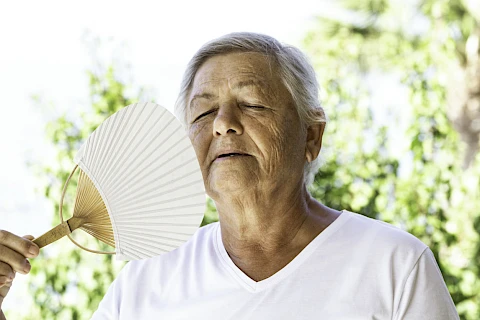
It is a good idea to pay extra attention to seniors' well-being as the temperatures rise. Seniors are more vulnerable to the risks associated with extreme heat. Chronic health conditions and certain medications inhibit the body's ability to cool down. Here are some tips for caregivers to help keep seniors safe during hot summer days.
Stay Hydrated
A senior's body becomes less efficient at regulating temperature, and they might not feel thirsty as often. Encourage regular fluid intake to help prevent dehydration. Offer them water throughout the day even if they don't ask for it. Provide a variety of fluid options like water, herbal teas, or electrolyte drinks. Prepare lighter meals with high water content, including soups, fruits, and vegetables. Water is always the best choice. Try adding a slice of lemon or cucumber to make it more appealing. Beverages like coconut water and diluted fruit juices are also good options.
Dress for the Heat
The right clothing can significantly affect how well a senior handles the heat. Always choose lightweight, breathable fabrics like cotton or linen, which allow for better air circulation. Persuade them to wear wide-brimmed hats to shield them from direct sunlight and use sunglasses to protect their eyes from harsh rays. Opt for light-colored clothing, as darker colors absorb more heat. By dressing appropriately, seniors can stay cooler and more comfortable during the hottest days.
Time Outdoor Activities
Pay attention to the time of day when planning outdoor activities. The hours between 10 am and 4 pm are typically the hottest. It is best to avoid outdoor activities during this period. Schedule walks or gardening tasks for early morning or late evening. Always choose shaded pathways or spots to avoid direct sunlight. Take frequent breaks and have a cool drink on hand. These strategies help minimize exposure to high temperatures and reduce the risk of heat-related illnesses.
Heat-Related Illnesses
Two common heat-related conditions to watch for are heat exhaustion and heat stroke. Symptoms of heat exhaustion include heavy sweating, weakness or tiredness, and dizziness or lightheadedness. Nausea, vomiting, and muscle cramps can also occur. Signs of heat stroke are more severe and include lack of sweating despite the heat, red, hot skin, rapid pulse, and confusion or unconsciousness. If heat exhaustion is suspected, move the senior to a cooler place, provide water, and apply cool, damp cloths to their body. For heat stroke, call 911 immediately and try to cool the person down while waiting for professional help.
Create a Cool Environment
A cool indoor environment is just as important as staying safe outdoors. Use fans and air conditioners, and keep the living area well-ventilated. These can substantially reduce the risk of heat-related issues. Keep blinds and curtains closed during the hottest parts of the day. Use ceiling and portable fans to increase airflow. Ensure the air conditioning is in working order, especially during heatwaves. Regularly check indoor temperatures to make sure they stay within a comfortable range. If air conditioning is not available, visiting a local cooling center or a shopping mall can provide relief from the heat.
Senior Helpers Can Help Keep Seniors Safe During Extreme Heat
Senior Helpers provides a wide range of professional, in-home senior care services. If you live in the St. Paul, Roseville, New Brighton, or Shoreview areas, don't hesitate to contact us today at Senior Helpers Roseville, MN. We are happy to assist you in helping your loved ones stay safe, healthy, and cool this summer and every other time of the year.